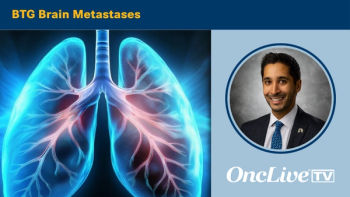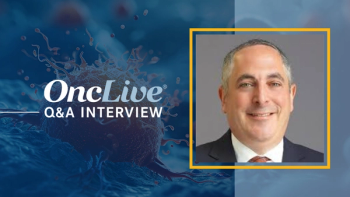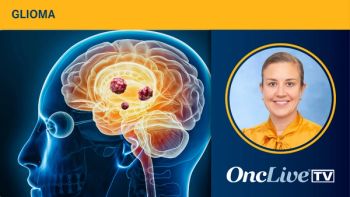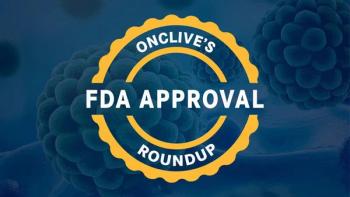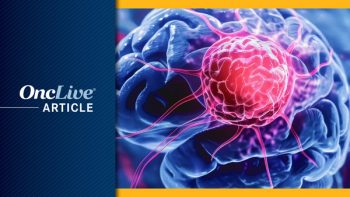
FDA Grants Nivatrotamab Orphan Drug Status for Pediatric Neuroblastoma
The FDA has granted an orphan drug designation and rare pediatric disease designation to the bispecific antibody nivatrotamab for the treatment of patients with neuroblastoma.
The FDA has granted an orphan drug designation and rare pediatric disease designation to the bispecific antibody nivatrotamab for the treatment of patients with neuroblastoma, according to an announcement from Y-mAbs Therapeutics, Inc.1
“We are very pleased with the orphan drug designation for nivatrotamab, as this potentially would give us 7 years of market exclusivity upon market approval,” Thomas Gad, founder, chairman, and president of Y-mAbs, stated in a press release. “The rare pediatric disease designation makes us eligible for a Priority Review Voucher (PRV) upon potential approval of the biologics license application for this rare pediatric cancer. Among our leading compounds, 4 now have rare pediatric disease designations, and this designation further increases our chances of ultimately receiving multiple PRVs.”
Nivatrotamab is the first T-cell–engaging antibody to use the BiClone format to enter human clinical trials, according to the company.2 The BiClone format uses an IgG-scFv format to augment tumor binding and T-cell recruitment, while reducing the risk of non-specific T-cell engagement. The agent was developed by investigators at Memorial Sloan Kettering Cancer Center (MSKCC) and is exclusively licensed to Y-mAbs.
Data from preclinical studies examining the agent showed that it led to over 1000-fold greater potency over conventional anti-GD2 IgG antibodies.
The agent is currently under examination in a phase 1/2 study (NCT03860207), which is being conducted by investigators from MSKCC.3 In the trial, investigators are evaluating the safety of the agent in patients with relapsed/refractory neuroblastoma, osteosarcoma, and other solid tumor cancers. The trial is estimated to enroll 30 participants.
To be considered for inclusion on the phase 1 portion of the trial, patients must have received a diagnosis of neuroblastoma defined by international criteria and confirmed by the MSKCC Department of Pathology. With regard to tumors other than neuroblastoma or osteosarcoma, only patients with GD2-positive tumors can participate; as such, those with melanoma, desmoplastic small round cell tumors, retinoblastoma, medulloblastoma, and soft tissue sarcomas, are eligible.
Moreover, patients with neuroblastoma must be refractory to chemotherapy or have relapsed, high-risk disease. Those with osteosarcoma must have relapsed or refractory disease following standard systemic chemotherapy. Patients with non-neuroblastoma or non-osteosarcoma tumors who have GD2-positive disease, must have relapsed or refractory disease that is resistant to standard therapy in order to participate.
For the phase 2 portion of the trial, patients with neuroblastoma must be refractory to chemotherapy or have relapsed high-risk disease to be eligible for group 1. Additionally, the diagnosis of neuroblastoma must be defined by international criteria. For group 2, patients need to have a diagnosis of high-grade osteosarcoma per histopathology. Patients must have relapsed or refractory disease following standard systemic chemotherapy.
Overall, patients must be 1 year of age or older, have had previous exposure to anti-GD2 antibodies with a human anti-human antibody (HAHA) titer of less than 1300U/mL. Patients also needed to have acceptable hematopoietic function.
Patients in complete remission, who have severe major organ dysfunction, hematologic and active central nervous systemic (CNS) malignancies, active life-threatening infection, a history of autoimmune disease with potential CNS involvement or current autoimmune disease, are not eligible for inclusion. Patients who received chemotherapy or immunotherapy within 3 weeks before starting the study cannot participate.
In the trial, patients will receive nivatrotamab intravenously over approximately 1 to 3 hours on days 1 and 8 of each treatment cycle. In cycle 1, blood will be collected for pharmacokinetic analysis. The primary end point of the trial is maximum-tolerated dosage, which will be defined as the dose at which the toxicity rate does not exceed an acceptable threshold of 15%.
“We are very pleased by this recognition by the FDA, and plan to expand the ongoing study with nivatrotamab into 2 separate phase 2 arms in neuroblastoma and osteosarcoma, respectively, as well as a separate phase 2 multicenter study in small cell lung cancer,” Claus Moller, MD, PhD, chief executive officer of Y-mAbs, added in the release. “We expect to submit an investigational new drug [application] for the lung cancer study during the fourth quarter of 2020, and we are thrilled to widen nivatrotamab’s clinical reach to include adult indications.”
References
- Y-mAbs’ nivatrotamab for the treatment of patients with neuroblastoma granted orphan drug designation and rare pediatric disease designation by FDA. News release. October 7, 2020. Accessed October 7, 2020.
https://bit.ly/3lt1hhj . - Our pipeline. Y-mAbs Therapeutics, Inc. Accessed October 7, 2020. https://bit.ly/3d8MFAv.
- Study of the safety and efficacy of humanized 3F8 bispecific antibody (Hu3F8-BsAb) in patients with relapsed/refractory neuroblastoma, osteosarcoma, and other solid tumors. ClinicalTrials.gov. Updated November 8, 2019. Accessed October 7, 2020.
https://www.clinicaltrials.gov/ct2/show/NCT03860207 .


